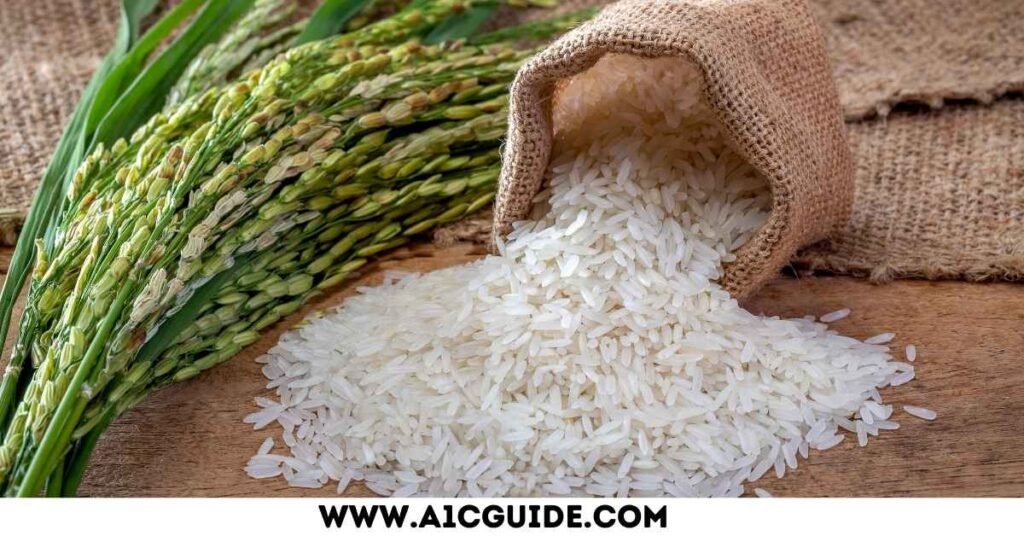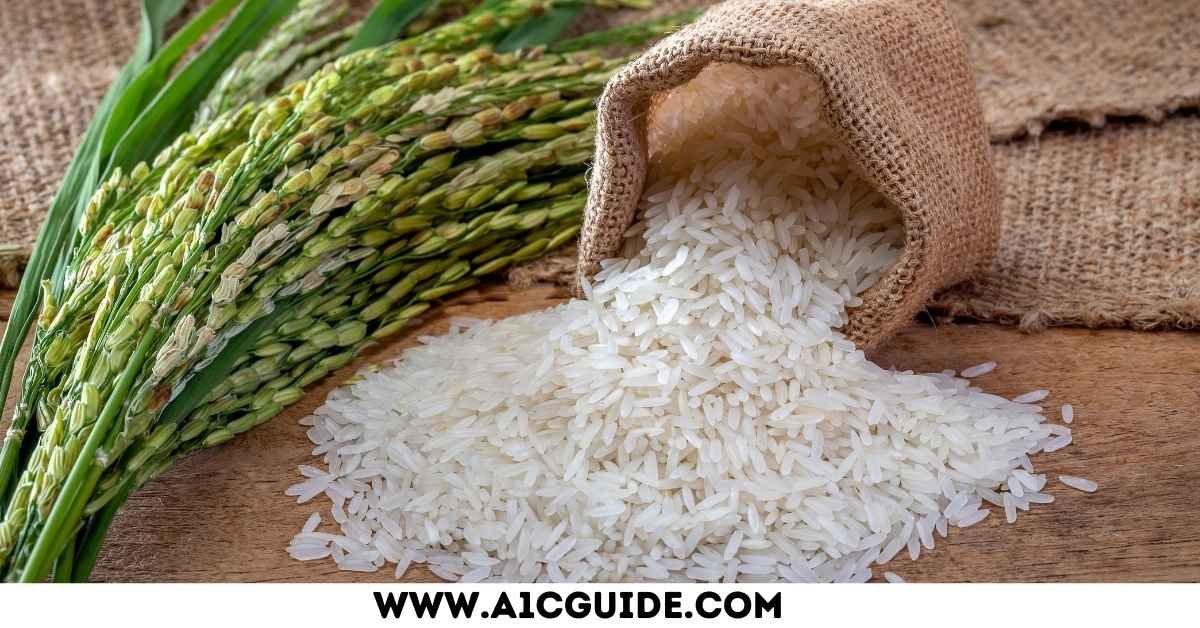Table of Contents
As individuals with diabetes strive to make informed dietary choices, the selection of rice becomes a significant consideration.
Jasmine rice, celebrated for its fragrant aroma and unique taste, prompts questions about its suitability for a diabetic diet.
This article discusses the potential benefits and considerations for individuals with diabetes when incorporating jasmine rice into their meals.
Understanding Jasmine Rice And Its Characteristics
Distinctive Traits of Jasmine Rice
- Aromatic allure: Jasmine rice is renowned for its enticing aroma, reminiscent of popcorn or flowers, which adds a distinctive quality to various dishes.
- Long-grain variety: Jasmine rice is long-grain, featuring slender, elongated grains that remain separate and fluffy when cooked.
Nutritional Profile of Jasmine Rice
- Calorie content: Jasmine rice is a calorie-dense food, providing a relatively high amount of energy per serving.
- Limited fiber content: Similar to white rice, jasmine rice is refined and lacks the fiber and nutrient richness of whole grains.
Impact Of Jasmine Rice On Blood Glucose Levels

Glycemic Index of Jasmine Rice
- Moderate glycemic index: Jasmine rice falls in the medium glycemic index (GI) range, indicating it digests more slowly than high-GI foods like white bread.
- Gradual glucose release: The moderate GI suggests that jasmine rice may lead to a more gradual release of glucose into the bloodstream, potentially impacting blood sugar levels more moderately than high-GI options.
Is Jasmine Rice Good For Diabetics?
Benefits of Jasmine Rice
- Palatability and versatility: The pleasing aroma and delicate flavor of jasmine rice make it a popular choice for various cuisines, adding an enjoyable element to meals.
- Easily digestible: Jasmine rice is easily digestible and suitable for individuals with digestive sensitivities or specific dietary restrictions.
Considerations for Diabetics
- Portion control is essential: Moderation is vital to any carbohydrate-rich food. Controlling portion sizes helps manage overall carbohydrate intake and its impact on blood sugar levels.
- Balanced meals: Pairing jasmine rice with proteins and non-starchy vegetables can contribute to a more balanced meal, slowing down glucose absorption.
Incorporating Jasmine Rice Into The Diabetic Diet
Meal Planning Strategies
- Combine with proteins and vegetables: Create balanced meals by pairing jasmine rice with lean proteins and a generous serving of non-starchy vegetables.
- Opt for whole grains occasionally: While jasmine rice is refined, incorporating whole grains like brown rice or quinoa into the diet sometimes enhances the nutritional diversity of meals.
Cooking and Preparation Methods
- Use healthy cooking techniques: Opt for methods like boiling or steaming instead of frying to preserve the integrity of jasmine rice and minimize its impact on blood sugar.
- Add fiber-rich components: Enhance the fiber content of jasmine rice dishes by including vegetables, lentils, or beans, promoting better digestion and blood sugar control.
Regular Monitoring and Individual Responses
- Monitor blood sugar levels: Regularly check blood sugar levels to observe how the body responds to jasmine rice and adjust portion sizes accordingly.h
- Individual responses: Recognize that personal reactions to jasmine rice may vary. Some individuals with diabetes may find it easy to fit jasmine rice into their diet, while others may not.
FAQs
- Why is jasmine rice better for diabetics?
Jasmine rice has a moderate glycemic index. Although a refined food grain, it contains niacin and iron. Iron and niacin in jasmine rice help produce red blood cells in the body.
However, portion control is mandatory while eating jasmine rice if you have diabetes.
Conclusion
Jasmine rice, with its aromatic charm and culinary versatility, can be a part of a diabetic diet when approached mindfully. While it lacks the fiber content of whole grains, its moderate glycemic index suggests a more gradual impact on blood sugar levels.
Portion control, strategic pairing with lean proteins and non-starchy vegetables, and healthier cooking methods are essential for integrating jasmine rice into a diabetes-friendly diet.
Regular monitoring and consideration of individual responses contribute to personalized diabetes management. Consulting with a health service provider or a registered dietitian ensures tailored guidance and support in creating a nutritious and balanced diet plan for individuals with diabetes.
